Probably due to us planning a wedding ceremony, I've been pretty frustrated with Christianity lately. It is the best of philosophies (love conquers all), it is the worst of philosophies (you're a total piece of shit without God, but He killed his son to fix that, and now you're indebted to Him forever). There are infinite varieties, as infinite as the number of practitioners, but I've had enough experiences with enough varieties to create patterns in my mind that are hard to shake. I'm talking very similar, off-putting behaviors by young and old Christians among parts of mine and all my friends' families - northern, southern, and in-between. I do not blame this behavior on their sinful natures, I blame it on fear, suppressed emotional responses, and the bizarre teachings their cultures extrapolate from a book they all worship and seek answers from, in lieu of a connection to the real God whispering through our hearts, guts, longings, and emotions (whispers that can be illuminated by holy words of Scripture, but also Poetry, or Songs...). Fear is at the root of what Christians call sin, but they are often so afraid of sinning that they create just as much sin (harming others) through the moralistic judgments and rules they create to anesthetize their anxiety with - rules about politics, behavior, sexuality, food, you name it. I can say this because I WAS this. Christians: as a child of your culture, trust me - the fear of fear creates more fear, in an endless cycle that will end up hurting, exasperating, or completely alienating your children. If you feel estranged from your adult child - do not take the cop out of blaming their "loss of faith" or "where they're stuck in their spiritual journey." Take a look at your fear and the way it drives you, consciously or unconsciously, especially in your relationship with yourself. Intimacy with our loved ones is the reward of self-intimacy; children do not cease to be very perceptive to the energies we give out about ourself and the way we see the world just because they are grown. It might be some form of evolutionary human nature to create rules out of fear, but it rarely leads to the ends one wishes for. Case in point: I joined the abstinence movement as a teenager. This movement is meant to protect kids from harmful sexual experiences at a young age. I was so afraid of sex that - guess what! - I ended up with a sexually abusive Christian spouse. Too much protection of innocence can lead to easier victimization.(I don't blame my parents for this - they did the best they could with what they had, and their motivations were good.) I won't be encouraging my kids to live their lives in fear of their bodies, drives, and losing their innocence. We'll figure it out as we go, but I want them to feel brave, strong, able to trust their gut and not just a set of arbitrary rules - and I want them to know they are going to make some mistakes and that I won't guilt them, blame myself, or accuse them of failure when it happens. I grew up loosely Evangelical, a Christian subgroup which has vast numbers of converts touched by alcoholism in their families one way or another. I wish the correlation could be studied statistically. Evangelical theology is codependency in spiritual form: it is your job to save the person in front of you. If they are an alcoholic, it's your job to love them sober; if they aren't "a believer," it's your job to be Jesus to them and effectively love them away from eternal hell. Children and grandchildren of alcoholics can spend their whole lives and limited energies on these missions while missing out on all the real reasons we're alive: to receive love as much as we give it, to relish the beauty of each day and ourselves in it, to taste and see that all of this is (or at least can be) so good. I spent my early 20s as a double grandchild of alcoholics (both sides) hugely codependent with my husband's personality issues. I attacked my own emotions as wrong if they contradicted what the Bible seemed to teach me about being loving and endlessly forgiving. I was divorced from my own anger and needs. It took me at least five years to realize my husband's actions were wrong. Yes, I partly blame Christianity for this. I'm 32 now and still learning how to listen to my emotions and needs. Right now this seems to especially be about facing and being honest about my anger. If you're a relative of an alcoholic, you know this is very par for the course; anger is the ultimate forbidden emotion (never mind if it's the heart's healthy response to a deep wound). And so, to a huge chunk of Christian thought, I say: Fuck off, and I am so glad to be rid of you. There is a way which seems right to a man, but that path leads to death. If you're one of the empathetic Christians I know and love and you're reading this, I hope you can understand why I need to say it. If you can't - it's not my job to fix that. :-)
Christianity is a religion. Religions are systems. Systems are inherently fallible; this is why Apple and Microsoft are always releasing updates for theirs, and why scientists never stop researching. The truths brought back from the (millions of) near and after-death experiencers are gifts that need to be integrated into the perspectives of anyone who has the ears to hear when they encounter them. Based on the tales from these afterlife pioneers, traditional Christianity is off in its insistence on hell if you are "unbeliever," or a God who should in any way be feared, or a need for constant cleansing from imperfections. Steve Jobs' last words also allude to this, "Oh, wow." Religions can be updated. Pope Francis is, miraculously, trying to get the ball rolling with this in Catholicland, where he is creating symposiums for listening to how real Catholics actually live (as divorced people, as birth control users, as gay partners). Rob Bell is making good strides in Evangelicalland. Oprah is bringing it to American women. This is the future of spirituality and belief: the love is right here already, for and in everyone. The old ways of fearing, projecting our inner gold onto externals, and rule-worshipping are passing away. The new wholeness is increasing.
Words are so limiting and they create so much tribalism! Here are things that mean the same thing, but depending on which one I choose, I could alienate someone: (Christian / Scientific / Spiritual-ish / my fave) soul / psyche / essence / me or you God / Truth / Universe / Love life / bio-electromagnetic current / consciousness / love heaven / continuation of consciousness / the afterlife / that place that's better than this, but that we're here to shape existence in the form of today There is tremendous possibility for unity between all of the groups, tremendous!
Anita Moorjani is helping me so much to whittle down my whole modus operandi to this: whether we realize it or not, we have a relationship with ourselves, and it is the most important part of our life. It affects everything: everyone around us, our health on even an atomic level, and our life story. (If we didn't have a relationship with ourselves, suicide wouldn't be a thing.) There are two ways to interact with yourself: one is conscious and loving, the other is neither of those and manifests in its most extreme form as narcissism. Most of us are moving between the two; sociopaths are on one end of the spectrum (only someone who violently hates themselves kills another human being), "saints" on the other. You can't love your neighbor if you don't love yourself. You can try, but you'll end up an exhausted martyr who sometimes or many times feels hard to be around. Where you are in your relationship with yourself directly correlates with the theology or paradigms you are currently attracted to. Judge, condemn, and fear yourself, and you will find theology about sin and a punishing God to feel absolutely true. Love and understand yourself, and that stuff will start to feel absolutely wacky. "Save yourself and thousands around you will be saved" was a quote from Seraphim of Sarov that changed my life ten years ago. It could also be rephrased as "Love yourself and thousands around you will feel love." We are not true individuals; any kindness, gentleness, self-care, or patience we extend to ourselves almost magically affects those around us, including our spouses and kids if we have them. Others can extend these gifts to us, but we also need to use them with ourselves in order for the love from other people to actually sink in and "work." This is the secret to successful parenting, and the secret to a good life. Love yourself and everything else will follow. Love yourself and you will make it through the hard parts of life with less suffering (because love is a balm that eases pain). Love yourself and you'll be much less likely to find yourself attracted to an asshole partner. Love yourself and if your current partner is an asshole, he will either start to love himself and change, or you'll get strong enough to care for yourself by divorcing him. In my case, loving myself currently means extending love and empathy back in time to that 19-year-old me who made a marriage choice out of rigid rule-following that most definitely stemmed from a lack of self-love. It feels really good to be able to put the pieces together like this. And the last two weeks have been the best I've ever experienced in my relationship and with my kids. I am so excited to see how my life keeps unfolding now that I have this paradigm to be confident in. (P.S. Therapy - with a good counselor - seems to be helpful for so many people because it's a safe place for learning how to love yourself better. The "cognitive behavioral" kind is helpful because it's about assessing and changing negative thought patterns/self-talk cycling in your head. There are many other kinds, too, most of which have to do with caring for your emotions, body, and memories. Loving yourself has so many delightful manifestations - everything from getting enough rest, to curling up with blankets and hot tea, to having a good cry, to allowing your life to take you to your vocation... Read Anita's book for so much good stuff on this!!) P.P.S. This perspective syncs well with one form of Christianity, and is in direct opposition to another (perhaps the majority) form of it. In order to learn self-love, many people have to leave Christianity because they were exposed to the second, and thank God we have the freedom to do that.
"Even the word 'love' doesn't do justice to it - it's like the feeling that you're home, it's a very welcoming and very, very comforting feeling." (Anita Moorjani on death) I can't stop watching YouTube interviews with Anita Moorjani. She just beat out Martha Beck and Carl Jung for my Top Sage seat. So love-filled, so simple, so humble, so normal - and so HELPFUL, I'm finally able to synthesize much of what I've been grappling with for so long. And she talks about practical things, like parenting, and living with these necessary but blind educational, political, and financial systems. To summarize her story: she had advanced stage 4 lymphoma, essentially died, then came back after meeting her dad and best friend in the place that comes after this. When she came out of her coma, she wanted to listen to Dancing Queen over and over, the first food she asked to eat was chocolate ice cream, and the first activity she wanted to do when she was released from the hospital was go shopping. So the R-complex in our brain is a gift after all, is a delightful part of being alive! We become human partly to experience ice cream and shopping and music! If I was an infinite God, I could see doing that, too - come here over and over as millions of magnificent mini-beings to experience all the wonders of life, and the ultimate wonders of family and friendship. So the reincarnation question seems to be answered for me as I was guessing, too - because all life is one, we can conceivably access the memories of anyone who lived before us (and maybe also after us - the Hopi Indians had prophecies hundreds of years ago about towers of crystal and black lines cross-crossing the land). Because the full reality is that our "I am" is part of the huge "I am," in a sense all lives actually are our past lives. Anita's analogy was a hand; the fingers are human beings and the hand is God, but the definition of "hand" includes fingers. ("Each soul, each soul completes Me" - Daniel Ladinsky) I had been picturing mushrooms, how the surface fruits are like human beings and the system underneath growing them is God, and also, the whole living organism/fungi is God. Anita confirmed through her experience of death that we both shed our layers of form in the place after death (including gender and name!) but also remain our distinct, individual selves, completely recognizable to loved ones. This is not heretical to Christianity; Eastern Orthodox have theology about "theosis," becoming one with God. Anita basically gives very clear thesosis instructions. What is so delightful is that it is about uncovering your pre-existing radiance, your nature of love - not climbing a spiritual mountain. Suffering helps in the process to the degree that, in order to heal from it, you must practice self-love. But suffering is not required. Anyone can start practicing loving themselves at any point. (Martha Beck was so helpful for this for me.) When I say that we're made out of God and are part of God - I'm not saying we are gods, or that we are God and God is not. I'm not being Kanye West. That's animal perspective, that's pecking-ordered, power-hungry, desperation stuff. Nope. Love doesn't work like that. Anita described God as a formless being of unconditional love, although maybe she was in some outer regions of God's essence because she said she knew if she went "further up and further in" she wouldn't be able to return to life and her body here, and Eben Alexander talks about many different planes of heaven. Though, ultimately, I don't mind if there is no face or body involved with God; God has to be personal regardless, because "love" is incompatible with "impersonal." Love cannot exist without a connection between at least two. Anita's main message is that loving yourself is the most important thing you can do, and all truly good actions flow from that center. That syncs very well with the Christian message that God is love and God loves you. If God loves you, you should definitely love yourself! (Loving and caring for yourself IS God loving you.) Here are some terrific quotes: "If you really loved yourself, so many of your issues and problems in life would be solved and healed." "Other people love you more when you love yourself more." "The more you love yourself, the less fear you have in your life." "Let emotions move through you, but make your life about celebration, regardless of what you're going through. That is really important." "We haven't come here for the purpose of suffering." Which is related to the other thing I keep pondering... I watched a documentary on Netflix about tests done at Berkeley on a drug that is released in the brain only at birth and death (DMT). The scientist heading the study eventually stopped it because he felt he was messing with actual and very powerful spiritual realities. One woman mentioned seeing the place where souls wait to be born. I really resonate with the idea that I (and everyone) existed before I was given this body, and that I chose to come here - maybe even knowing what my whole life would end up looking like, including the worst and most painful parts (because I was outside of time at that point). Choosing all of my history, past and future - choosing all the goodness even with the cost of limitation and suffering - that is such an empowering thought and helps me move forward with much more peace in both mind and body. P.P.S. I've been getting acupuncture weekly as a treatment for lingering PTSD symptoms, and WHAT A GIFT.
A good parent doesn't favor any of their children, so I'm not sure why a good God would, either. Christian rhetoric is often, "You have to become a Christian to be one of his children." No. One of many proofs: God will not miraculously heal your loved one because you/they are a Christian while ignoring his pagan child in the next hospital room who isn't. He won't heal you because you pray harder, or even because you believe in prayer period (though I do think prayer has power in the sense that each of us, regardless of label, as a little piece of love, may alter outcomes by connecting to suffering people with our hearts and minds). God will not give you a better or worse life than someone else because you believe in him; life just happens, good and bad, to us all. Atheists experience spontaneous remission from cancer, and Christians die in random car accidents. Outside of things we can't control, it's mostly personal choice that affects the directions our lives take. That choice can come from different parts of us - our center in God, or our fear-brain, say. But it's still us doing the choosing. The concept of special reward for joining God's club is ego talking, and it sets people up for even greater disappointment and pain when shit goes down, which is why I get so frustrated with that perspective. "The rain falls on the good and bad alike" is a scripture reinforcing that all are God's children, and in spite of the hard stuff, love - in many forms - is available to us all. As anyone who's visited this blog before knows, I get tired of the Christian club lingo, pride, untrue promises surrounding suffering, and false theology around God's ways. ("His ways are not our ways" is a great Bible verse that seems to turn the way many Christians approach the Bible on its head.) On a positive note, Nate and I watched this interview on the Daily Show and I almost burst into tears, it moved me so much. I turned to Nate and said, "That guy is a missionary."
I keep thinking about how the American psyche (my own mini slice of it included) seems inclined to great frustration when things cannot be gotten for free, or at least cheap. By things, I mean essential and profound goodnesses like marriage or children. All good things come with a price: marriage at the cost of a lifetime learning how to share, children at the cost of limiting infinite possibilities of life trajectory (which were maybe not as possible as the movies tell us they are anyway), the peace and perspectives of old age at the cost of the breakdown of our bodies. We resist these realities more than other cultures, because we've been sold a lot of b.s. If advertising were right, for only minimal amounts of money or energy, we should get everything we want. I was really pissed that this is true of life four years ago when I felt (legimitely) like I didn't have what it cost to pay the price of single mothering four kids following years of financial struggle and marital neglect. I was pissed about my weight, my stretch marks, my fatigue while everyone else in their twenties seemed happy, the cement blocks anchoring my ability to dream. This frustration was made a lot worse by the illusions my country and surrounding city believe and chase. It's okay to me now that things cost something. That's partly because I'm not alone anymore, I have a partner willing to love me and the kids. It's also because my kids are out of the most exhausting stage and I'm starting to see some of the fruits of my labor. The word sacrifice means "to make sacred." If marriage wasn't a challenge sometimes, we wouldn't turn into better and better people over the long haul. If babies didn't turn your life upside down for awhile, you probably wouldn't be as bonded to your kids even into adulthood, because bonds are formed over the investment of ourselves. (That's also one reason why Americans are so lonely; we don't really need each other anymore. Technological advances, the Internet, and decent salaries have taken away the necessity for others to sacrifice time or energy for our mutual survival, and bonds are shallower as a result. Wedding planning has brought this into focus for me - thanks to enough money and Pinterest, I don't really *need* need anyone to help. If I did, I'd probably be screwed because most of us don't have leftover energy for baking a wedding cake or sewing decorations anyway, focused as we have to be on making decent salaries.) I read the phrase "productive limitation" as a reason for why our souls take on these human forms and enter this sometimes debilitating life. I liked that so much, and I've been keeping it in heart. If I exist to be loved and love, to move the God-part of me ever closer to its home in God, I can see how limitations and the cost of myself are very productive.
from a nice Swami guy whose name I can't pronounce or spell:
"Salt has to be very carefully balanced. Similarly a true devotee is balanced. They do not take extremes. They are not superstitious, or sentimentalists. At the same time they are not dry philosophers, fundamentalists, or lukewarm about their spiritual lives. In the Bhagavad-Gita it is said, those that are on this path are regulated and balanced. They don’t eat too much or too little, sleep too much or too little. In their recreational activities they are very balanced. They have time for their spiritual lives, domestic lives and for their occupational responsibilities. All of their responsibilities are very carefully balanced and they do not neglect anything. It is important and a great secret, how to have balance and harmony in one’s life."
Granted, if you're depressed you need to sleep a lot, and also if your brain is lacking almost any neurotransmitter, you can have almost impossible-to-manage cravings for things like sugar, caffeine, alcohol. Our imbalances are often our souls or bodies trying to tell us something, not a lack in our spiritual fortitude. But I like that thought of pursuing the great secret in keeping my home, work, and spiritual life well balanced.
|
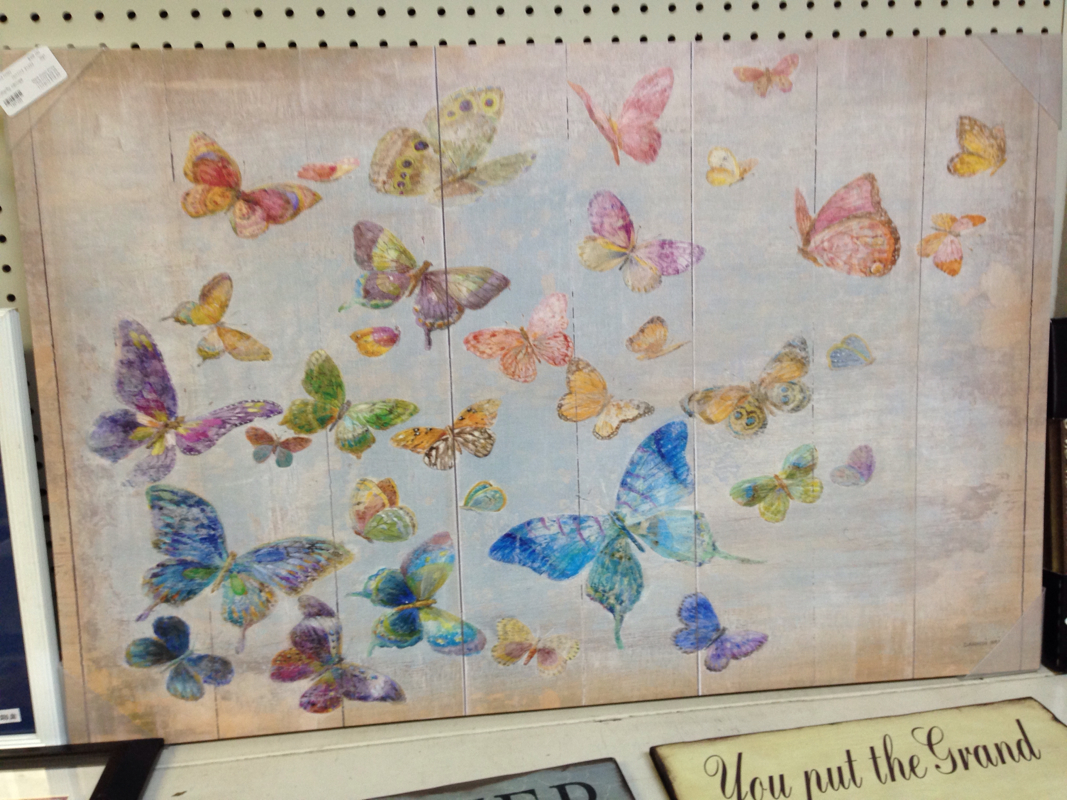
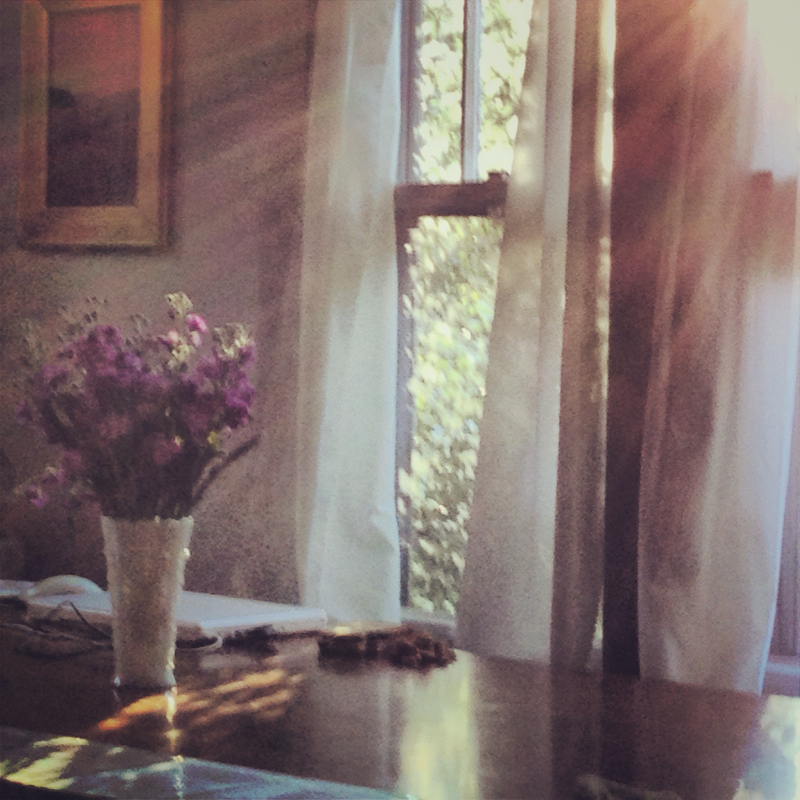
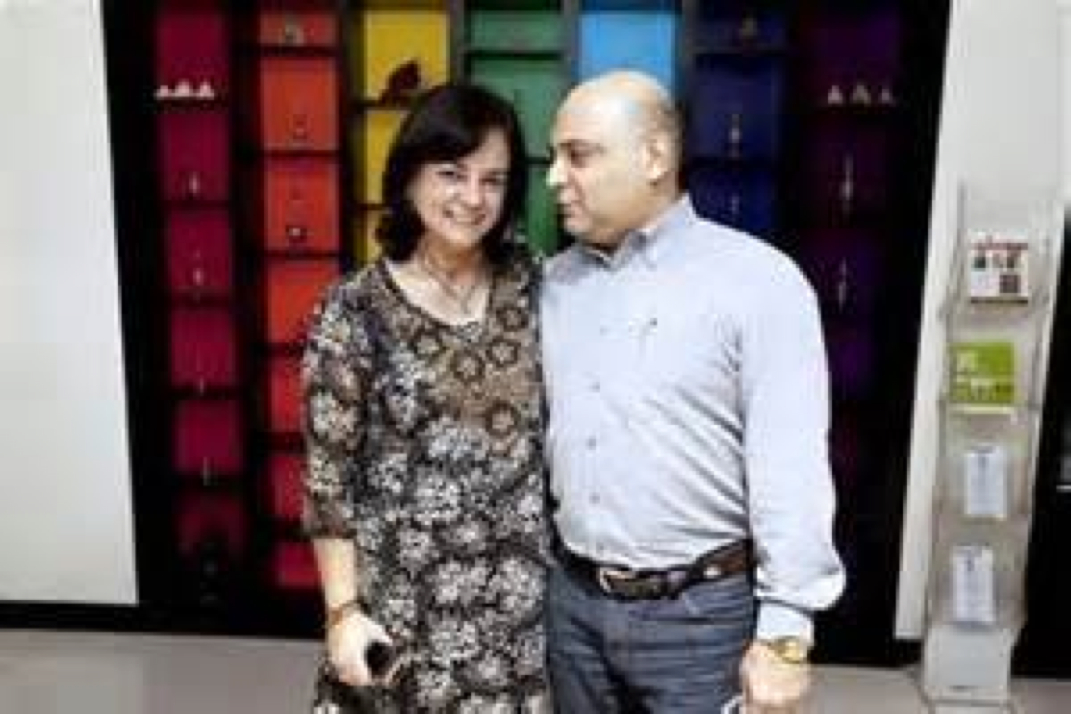
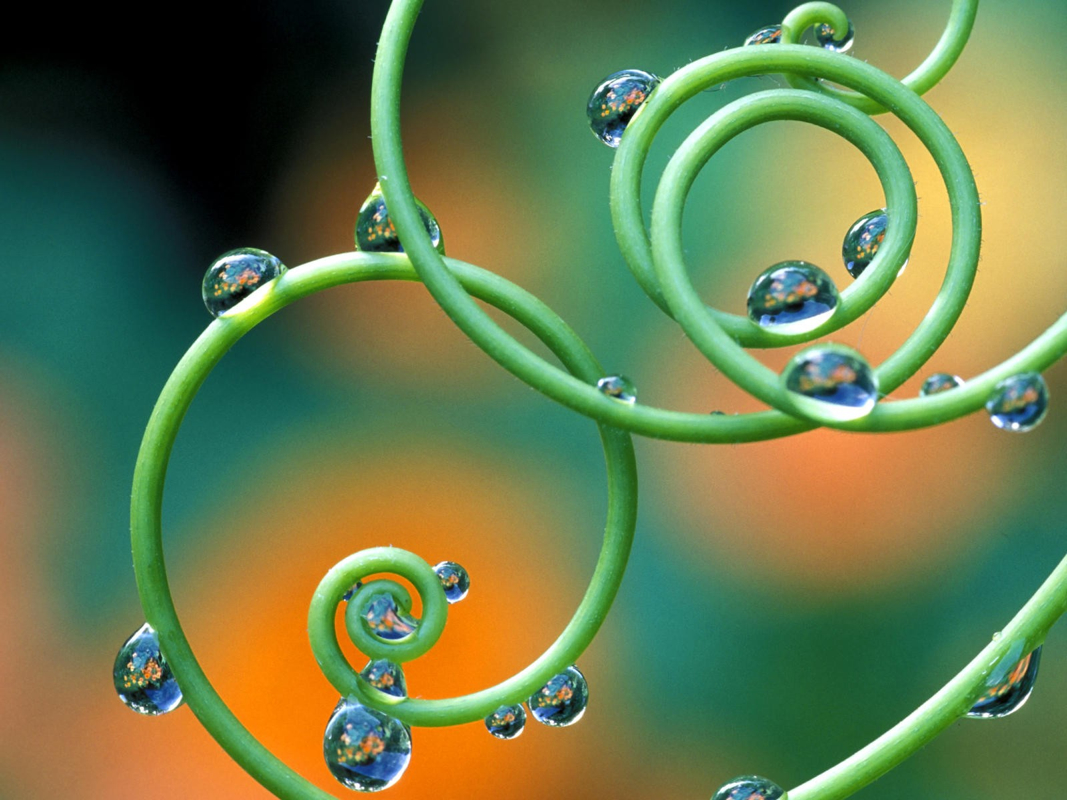
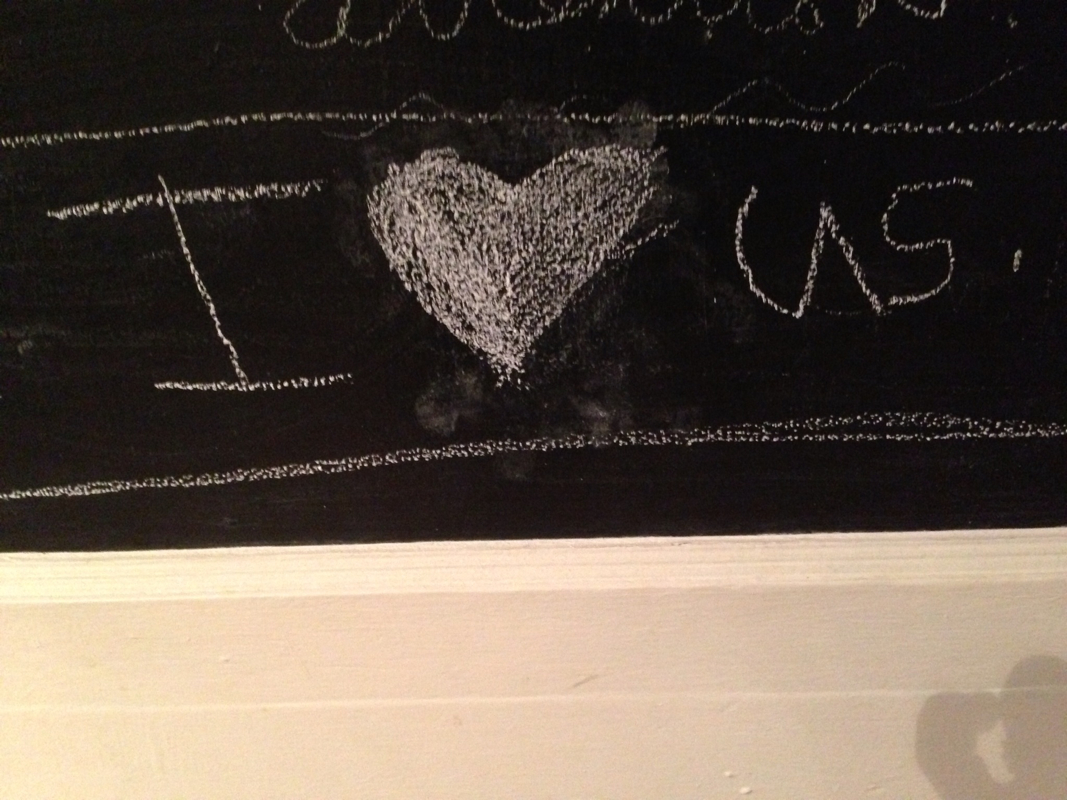

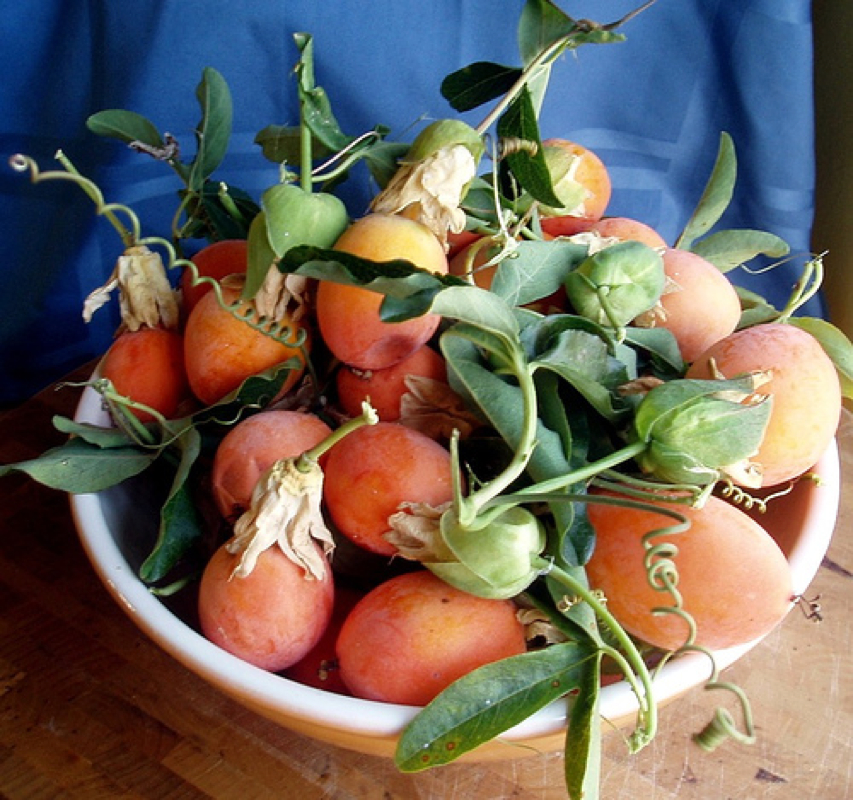
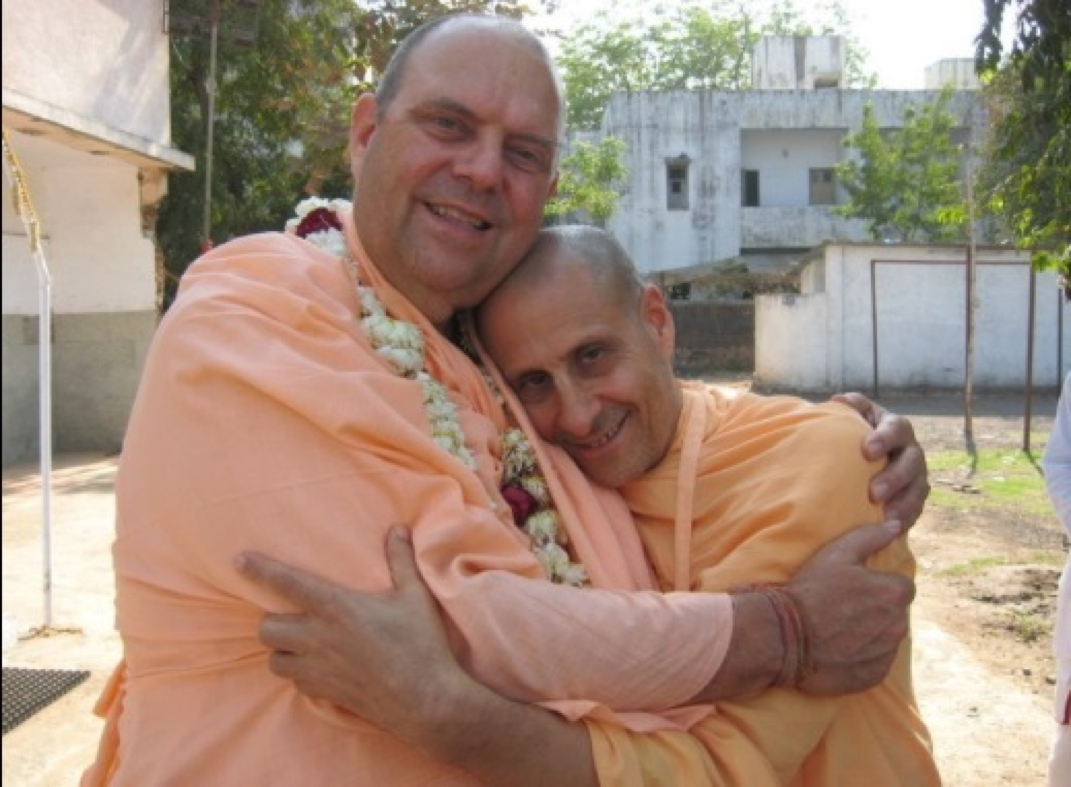
 RSS Feed
RSS Feed